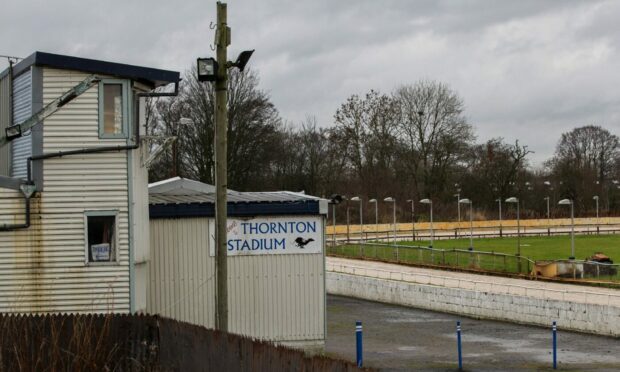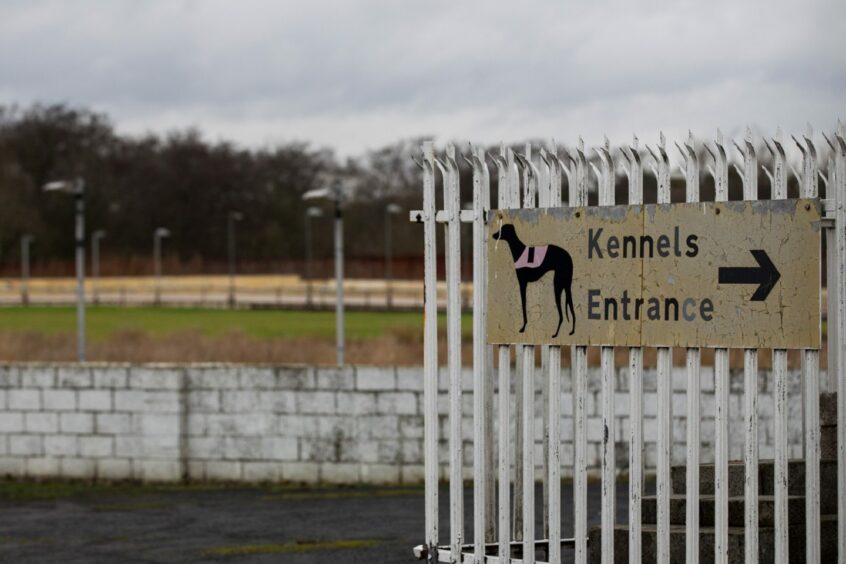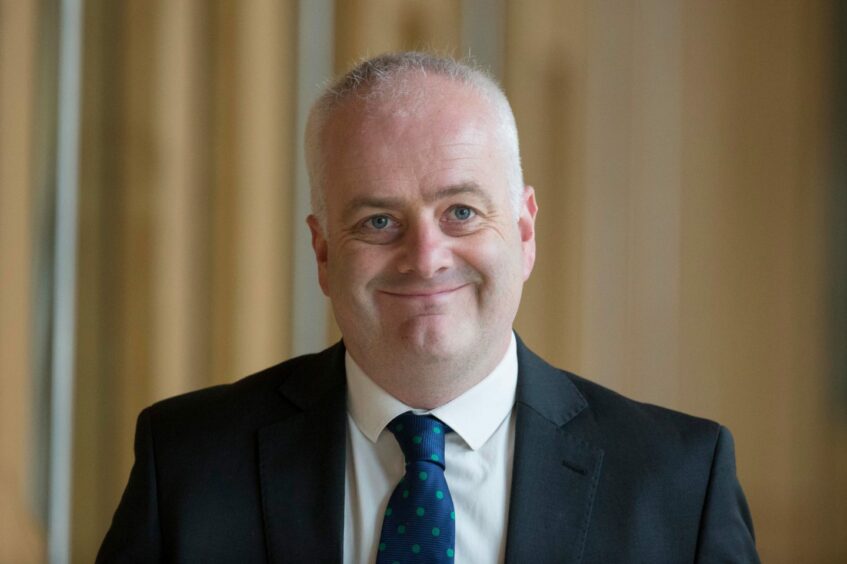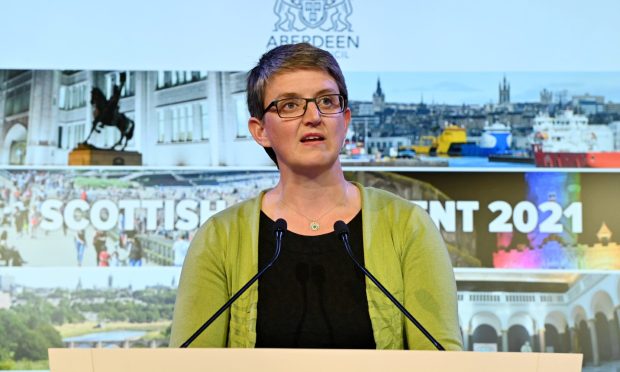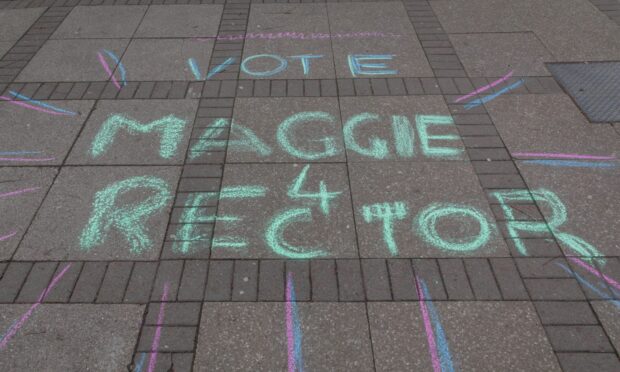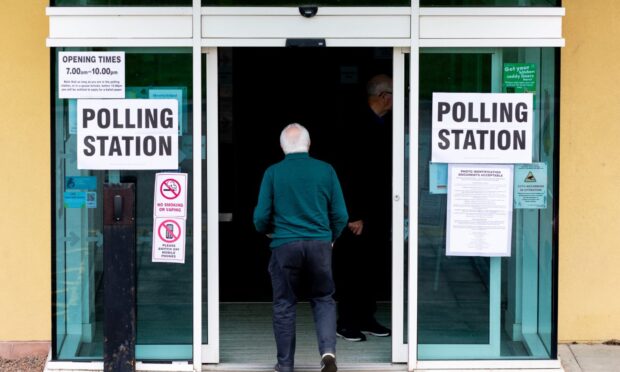Animal rights campaigners claim dogs are being inhumanely killed as they call for an end to greyhound racing at Scotland’s only active track in Fife.
Members of the Scotland Against Greyhound Exploitation campaign group took their fight to Holyrood, claiming the sport is “beyond reform”.
Thornton Stadium, near Kirkcaldy, is the only operating track, but is not regulated by the official Greyhound Board of Great Britain (GBGB).
There is one other track – Shawfield Stadium in Rutherglen – but it has not reopened since the coronavirus pandemic.
No regulation is ‘greatly concerning’
Addressing MSPs on Wednesday, Gill Docherty from the campaign group raised concerns about the lack of a vet or regulatory oversight at Thornton Stadium.
“There is no vet present so there is no administration of first aid or pain relief, no process for euthanising dogs and no qualified person to assess the dogs are in a fit condition to race,” she said.
“There is also no drug testing which is greatly concerning.”
She also claimed drug-testing revealed positive doping in greyhound racing is a problem – an accusation Thornton officials deny happens there.
Ms Docherty said greyhounds have been kept in garden sheds and can be transported in hot cars.
When we put the claims to Thornton officials, they responded to say dogs and children travel regularly in cars, and often races are held in the evening when it is cooler, adding: “It’s not like greyhound racing in Australia.”
No data on dog-death numbers
The group said there is a lack of reliable data because unregulated courses do not have to publish statistics on dog deaths.
Regulator GBGB says 197 dogs were injured and 15 died between 2017 and 2020 at Shawfield Stadium, meaning the overall total will be higher when other tracks are added.
Ms Docherty said: “Injuries and deaths are likely to occur at a similar or higher rate at Thornton Stadium but there is no requirement for them to record or publish this data.
“We have no idea how many dogs are doped, injured or killed.
“If a dog breaks its spine [at a regulated stadium] the vet there will inject the dog and put it to sleep.”
She added: “If a dog breaks its spine at Thornton, are they just putting it in the back of their car and trying to find a vet at 7pm?”
Support for complete ban
Mark Ruskell, Green MSP for Mid Scotland and Fife, also appeared at the committee to voice his support for the ban on greyhound racing.
He said the Animal Welfare Act 2006, which places a duty of care on animal owners to protect them from suffering, does not go far enough to prevent harm caused to greyhounds.
Mr Ruskell said: “In Scotland, greyhound racing is on its last legs.
“With only one licensed track left, it’s time to act decisively to protect the welfare of greyhounds and finally put an end to it.”
MSPs agreed to continue the petition from the campaign group and write to the Animal Welfare Commission, Thornton Greyhounds, the Scottish Government, Fife Council, the SSPCA, Police Scotland and GBGB.
Dog track denies doping allegations
Thornton Stadium said they have not had the funds to join the GBGB, and claimed there are vet surgeries within five minutes of the track.
Sandra Bingham, from the racing track, said: “For many years we had a vet at [the] track, [who] was rarely used for on-track incidents.”
She added: “An argument also would be if a dog is running in a forest or on a beach and breaks a leg, there wouldn’t be a vet on hand, and the owner would have to take the dog to the nearest surgery.
“Also if I broke my leg or worse, I would have to wait for an ambulance or make my own way to A&E, which is actually further away and probably with longer waiting times than my nearest vets.”
Ms Bingham added many racing greyhounds are treated better than some children and said: “We have never had a dog die on the track, sadly a patron has.”
Fife Council said a licence from the local authority is not required to allow greyhound racing to take place.
June Barrie, Fife Council’s legal services manager, said: “Fife Licensing Board has granted a premises licence under the Licensing (Scotland) Act 2005 to allow the sale of alcohol at Thornton Greyhound Stadium and also a betting track licence under the Gambling Act 2005.
“By law licensing boards must only make their decisions based on the criteria in the relative act.
“The board is not permitted to take the welfare of the animals into account when making a decision on the application for the licences.”
